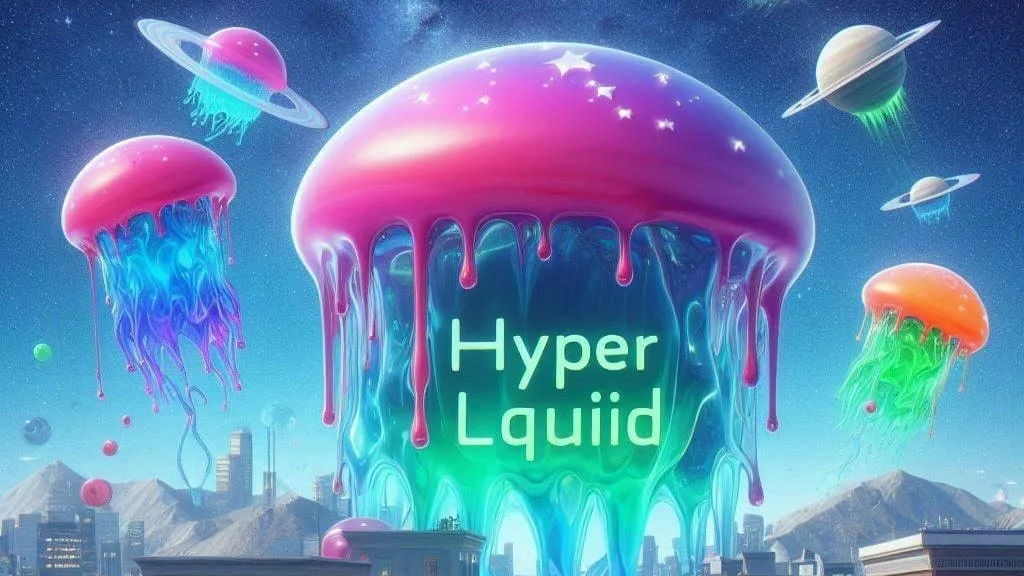
Hyperliquid, a decentralized perpetuals trading platform, has introduced major changes to its blockchain infrastructure following significant criticism surrounding its handling of the delisting of the JELLY memecoin. The move comes after a $6 million exploit that involved a whale forcing a short squeeze on JELLY, leading to the exchange delisting the token. In an effort to improve governance and prevent further backlash, Hyperliquid has now implemented fully on-chain validation for asset delisting, aiming to demonstrate its commitment to decentralization.
Hyperliquid’s recent update introduces fully on-chain validator voting for asset delisting. This allows a quorum of validator stakes to autonomously trigger asset removals without relying on off-chain coordination. By moving this process on-chain, Hyperliquid aims to enhance transparency and trust within its ecosystem, giving the community a more direct role in asset management. The platform made it clear that this change was implemented in response to the criticism it received following the delisting of JELLY and is intended to promote decentralized governance.
In a recent update on social media, Hyperliquid explained that the Hyper Foundation validators would vote to delist the MYRO perps around 13:00 UTC on March 29, 2025. This was presented as a demonstration of the new validation method. The platform also noted that while the validators would close votes off-chain for clarity, they are committed to strengthening the on-chain governance system.
The criticism Hyperliquid faced stemmed from a significant incident involving the JELLY token. On March 26, 2025, the platform was targeted by a trader who manipulated the liquidation mechanism through a well-executed short squeeze of the JELLY memecoin. This exploit forced the Hyperliquidity Provider (HLP) vault into a position where it faced over $700,000 in potential losses. In response, Hyperliquid closed the market, locking the price of JELLY at $0.0095, turning the potential loss into a profit.
While the platform’s swift action may have mitigated losses, it triggered widespread criticism from the crypto community, especially regarding Hyperliquid’s handling of the event. Many users felt that the exchange acted too hastily, with accusations that it was not transparent enough about the decision-making process. Critics also raised concerns about the platform’s governance, specifically around how it handled the situation and whether it was too centralized.
Hyperliquid has faced increasing scrutiny over centralization in its operations. One of the main points of contention is the platform’s control over a significant portion of staked HYPE tokens. Hyperliquid controls 81% of the staked HYPE tokens, which many in the community see as a sign of centralization that contradicts the platform’s claim of being a decentralized exchange. The exchange has also been criticized for limiting transparency and restricting participation, which has led some to question the platform’s commitment to true decentralization.
The CEO of Bitget, Gracy Chen, was among the critics, stating that the way Hyperliquid handled the JELLY incident was “immature, unethical, and unprofessional.” This criticism raised concerns about the platform’s integrity and trustworthiness, especially in light of its earlier claims about decentralization. Blockchain analyst ZackXBT also pointed out inconsistencies in Hyperliquid’s approach to governance, suggesting that the platform was more willing to act when it benefited its interests rather than fostering a truly decentralized environment.
In response to these concerns, Hyperliquid has acknowledged its shortcomings and promised to improve its platform’s technical infrastructure. The company stated that it would reimburse users affected by the JELLY incident and that the lessons learned would strengthen the network in the long term. The platform is now focused on refining its governance model, including further decentralizing validator voting and ensuring that its platform remains transparent and accessible.
The Hyperliquid team is committed to improving its approach to governance and asset management, but rebuilding user trust will require consistent, transparent action moving forward. Whether or not these changes will successfully address concerns about centralization and governance remains to be seen, but for now, the platform is positioning itself as a leader in decentralized perpetuals trading with a renewed focus on community involvement and governance.
Hyperliquid’s introduction of on-chain validator voting for asset delisting represents a significant shift towards more decentralized decision-making within the platform. While this change is a step in the right direction, the platform must continue to address concerns regarding centralization and governance. The criticism surrounding the JELLY exploit has highlighted the challenges decentralized platforms face in balancing transparency, security, and community trust. Moving forward, Hyperliquid will need to demonstrate that it can integrate its technical improvements with a more decentralized and user-focused governance structure to regain and maintain user confidence.

Get the latest Crypto & Blockchain News in your inbox.